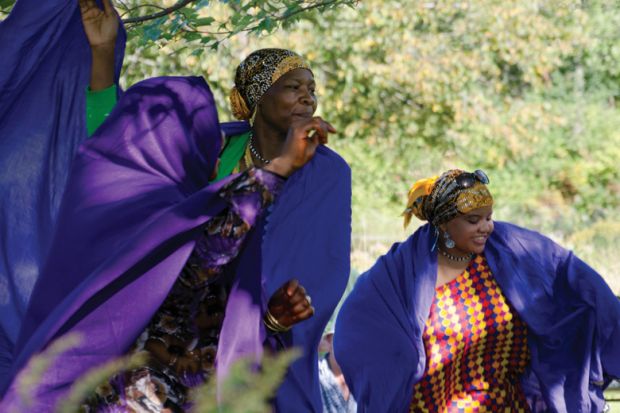“Welcome to Maine: The Way Life Should Be” reads the sign as you cross the border into the northernmost state on the East Coast of the US. Who decides how life should be for its residents? How do refugee newcomers interpret these messages? And how might they use their own agency to construct a life as they think it should be? These are the questions tackled in Catherine Besteman’s fine ethnography Making Refuge: Somali Bantu Refugees and Lewiston, Maine.
Tracing a very turbulent relationship between natives of the former mill town and its new Somali Bantu residents, Besteman details the hostile reception afforded the refugees, from generally negative public sentiment to a call by the mayor for wholesale assimilation that echoes the harsh reception afforded French Canadian and Irish immigrants in earlier eras. This is contrasted with the newcomers’ acts of agency: working the night shift at Dunkin’ Donuts, using mobile phones, wearing suits instead of traditional clothing, and speaking English instead of a native tongue. It prompts the question: how much assimilation is enough? Where is that magical space where everyone feels comfortable? And what parts of culture and self can be lost in its pursuit?
Besteman then turns the discussion to power: who has it, and how is it wielded over those who do not? She does a deft job of unpacking Somalia’s long history of powerlessness in international affairs, from colonial battles and the slave trade to international complicity in its massive weaponisation, refugees’ flight and dependence on charitable support – and how all these have played a part in her subjects’ marginalisation in present-day middle America.
Although effort is expended in presenting Somalia’s bleak history and eliciting a (deservedly) sympathetic response from the reader, this study is rather less successful in affording the sleepy host city equal time. Worldviews don’t come from nowhere. I grew up in New England and remember a time when visitors from two-hours-away Massachusetts would saunter through Lewiston, and their presumed liberality was practically met with pitchforks and driven out of town. Demonising the views of some Lewiston residents ignores the fact that both newcomers and long-time members of the community have historical baggage. In what ways, for instance, are both the powerless and those in power simultaneously victims of, and attempting to divorce themselves from, the human cost, consequences and responsibilities of globalisation?
Nevertheless, this vividly detailed study challenges common assumptions about assimilation, not least that it requires the wholesale abandonment of a past life for a new one. Besteman provides many fine examples of how resettlement brings change, some of which is quite subtle. There is the newfound normality of adapting to a multilingual environment, from a judge’s use of interpreters to white children learning Somali pleasantries on the playground; there is exposure to new foods and spices, as when a Franco-American museum director learns to love Somalian sambusas. And we learn of native-born citizens’ rediscovery of the kinds of reciprocity and neighbourly giving, resource sharing, respect for elders and communal childcare that small New England towns were built on – social and civic virtues that Somalis, too, have long depended on as their social safety net, but which are rarely seen in modern-day America. As Besteman points out, such practices remind Lewiston residents of simpler, more trusting days gone by. At the same time, even as the newcomers adapt, they fight to hold on to their notions of marriage, gender norms, authority and parenting.
Tensions between newcomers and established communities are as old as the US itself, and Making Refuge is a rich account of what is gained and what is lost in becoming American. Think of this book as your ringside seat to the birth of a new shared meaning of “life the way it should be”.
Faith Nibbs is director of the Forced Migration Upward Mobility research thinktank, and former research assistant professor in cultural anthropology, Southern Methodist University, Dallas, Texas.
Making Refuge: Somali Bantu Refugees and Lewiston, Maine
By Catherine Besteman
Duke University Press, 352pp, £70.00 and £19.99
ISBN 9780822360278 and 0445
Published 5 February 2016
后记
Print headline: Give and take in a US melting pot




